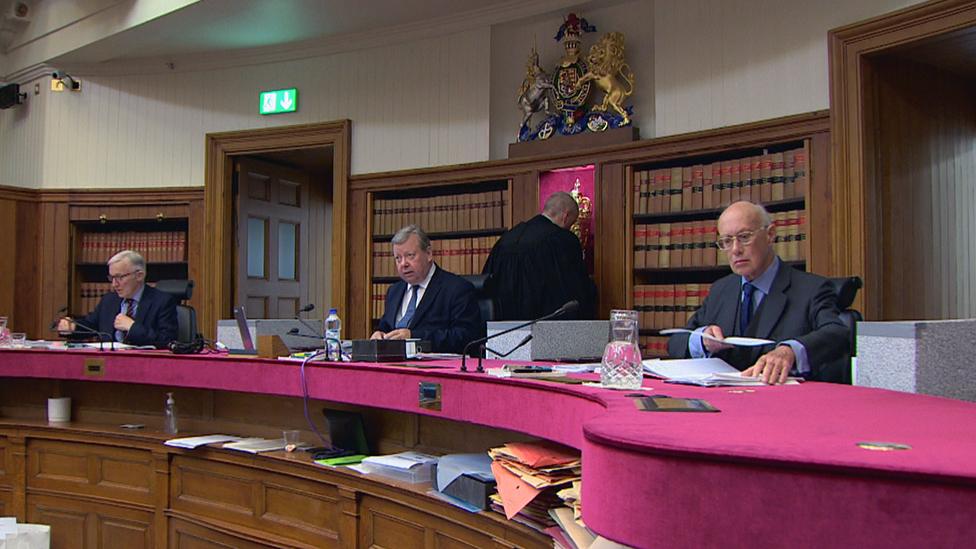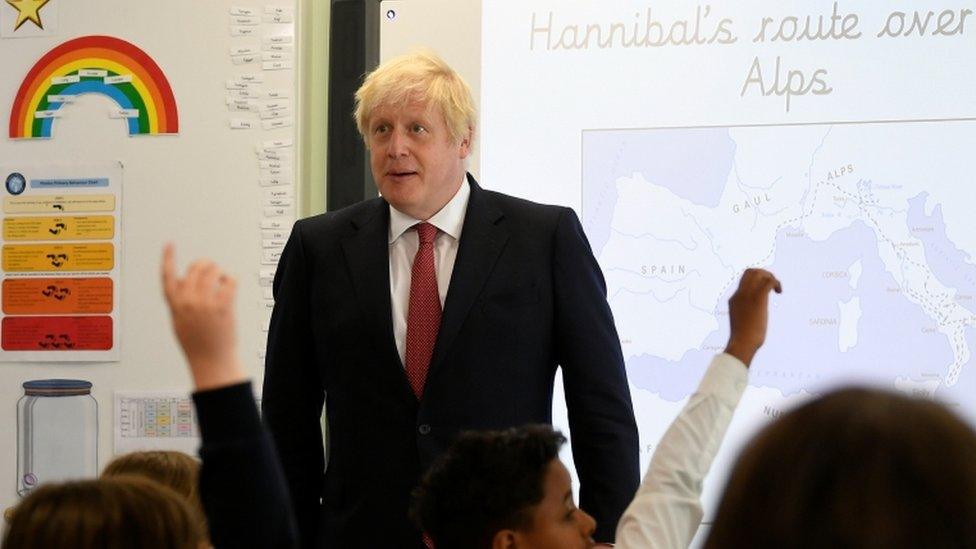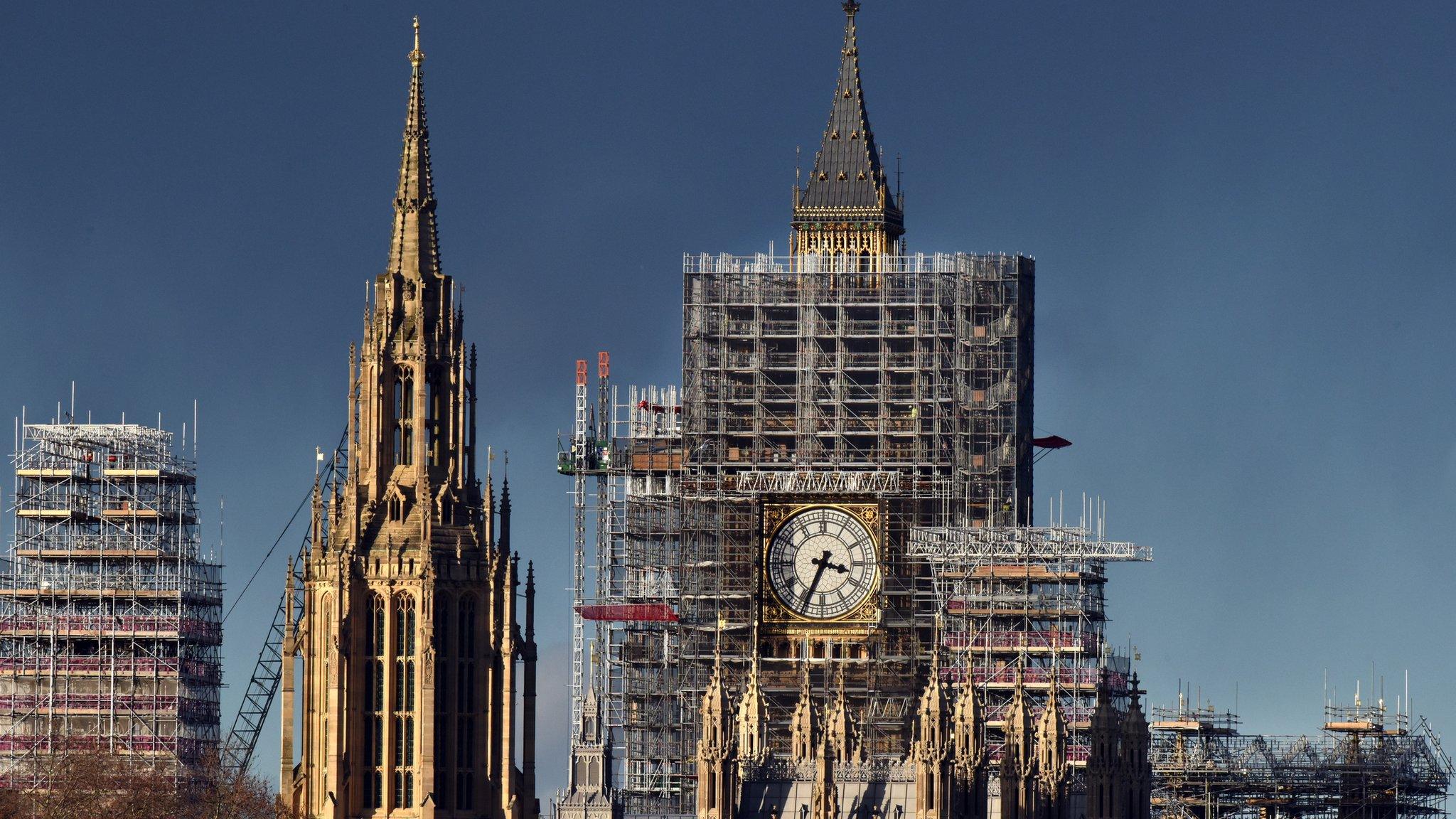Court to rule over Parliament shutdown appeal
- Published

The appeal against the court's original ruling was heard by a panel of three judges last week
Scotland's highest civil court is to again rule on whether or not Boris Johnson's suspension of the UK Parliament is legal.
A judge at the Court of Session last week rejected an attempt by a cross-party group of politicians to have the suspension declared unlawful.
They appealed to the court's Inner House, with a panel of three judges being asked to overturn the decision.
The panel is expected to deliver its ruling on Wednesday.
Parliament was officially suspended for five weeks - a process known as proroguing - in the early hours of Tuesday morning, with MPs not due back until 14 October.
Amid unprecedented scenes in the Commons, some MPs protested against the suspension with signs saying "silenced" while shouting: "Shame on you."
The prime minister's opponents argue that his aim is to avoid parliamentary scrutiny of his Brexit plans before the UK's current departure date of 31 October.
The UK government insists this is not the case and that the aim of proroguing Parliament is to allow Mr Johnson to set out his legislative plans in the Queen's Speech while still allowing sufficient time for MPs to debate Brexit.
A bill designed to prevent a no-deal Brexit was passed by MPs ahead of the five-week shutdown, but Mr Johnson's bid to hold a general election in October failed twice to get the required majority
In his ruling last week, judge Lord Doherty said Mr Johnson had not broken the law by proroguing Parliament, and that it was for MPs and the electorate to judge the prime minister's actions rather than the courts.
The case was brought by a group of about 75 largely pro-Remain MPs and peers, headed by SNP MP Joanna Cherry.

Boris Johnson has described claims that suspending Parliament is undemocratic as a "load of nonsense"
It emerged during last week's hearings that Mr Johnson appeared to have approved a plan to shut down Parliament two weeks before publicly announcing it.
The court heard the prime minister was sent a note on 15 August asking if he wanted to prorogue parliament from mid-September. A tick and the word "yes" were written on the document. He announced the plan on 28 August.
The court later agreed to release the documents to the media.
In a separate case brought by anti-Brexit campaigner Gina Miller, the High Court in London also ruled last week that Mr Johnson had acted lawfully. Ms Miller is appealing that decision in the Supreme Court.
Meanwhile, a hearing at the High Court in Belfast into the implications of a no-deal exit is continuing, with a campaigner for victims of the Troubles arguing that it could jeopardise the Northern Ireland peace process
- Published8 October 2019
